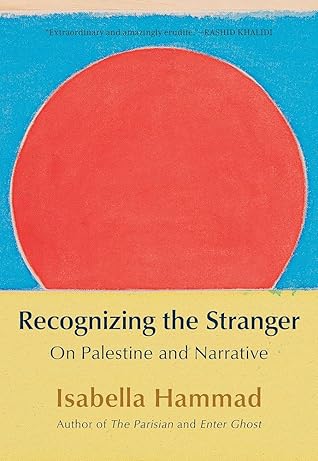More on this book
Community
Kindle Notes & Highlights
Read between
January 12 - January 14, 2025
Novels reflect the perpetuation of a human impulse to use and experience narrative form as a way of making sense of the world.
To recognize something is, then, to perceive clearly what on some level you have known all along, but that perhaps you did not want to know.
real life we do not usually have sudden moments of recognition; normally we learn and grow and change gradually, if indeed we change at all.
the idea of the epiphany, a word I’ve already used, and a concept which, by virtue of the suddenness of its process and its relationship to knowledge, is close to recognition.
And yet the pressure is again on Palestinians to tell the human story that will educate and enlighten others and so allow for the conversion of the repentant Westerner, who might then descend onto the stage if not as a hero then perhaps as some kind of deus ex machina.
literature is not life, and that the material we draw from the world needs to undergo some metamorphosis in order to function, or even to live, on the page.
This is the most I think we can hope for from novels: not revelation, not the dawning of knowledge, but the exposure of its limit. To realize you have been wrong about something is, I believe, to experience the otherness of the world coming at you. It is to be thrown off-center. When this is done well in literature, the readerly experience is deeply pleasurable.
“Having a strong reaction is not the same thing as having an understanding,” she writes, “and neither is the same thing as taking an action.” It’s true that emotion and understanding are not the same as action, but you might say that understanding is necessary for someone to act.
To induce a person’s change of heart is different from challenging the tremendous force of collective denial.
Palestinianism was for Said a condition of chronic exile, exile as agony but also as ethical position. To remain aloof from the group while honoring one’s organic ties to it; to exist between loneliness and alignment, remaining always a bit of a stranger; to resist the resolution of the narrative, the closing of the circle; to keep looking, to not feel too at home.
We who are not there, witnessing from afar, in what ways are we mutilating ourselves when we dissociate to cope? To remain human at this juncture is to remain in agony. Let us remain there: it is the more honest place from which to speak.
Do they really believe they can obliterate the Palestinian will to life?
Their seventy-six-year attempt—sometimes protracted, sometimes fast—to eliminate the native seems at times like the strategy of fools. Of course they will harden Gaza each time they bomb her; of course they will force her resistance fighters underground. Possibly they know this very well, and even desire it, since it provides a pretext to keep bombing. But they can never complete the process, because they cannot kill us all.


